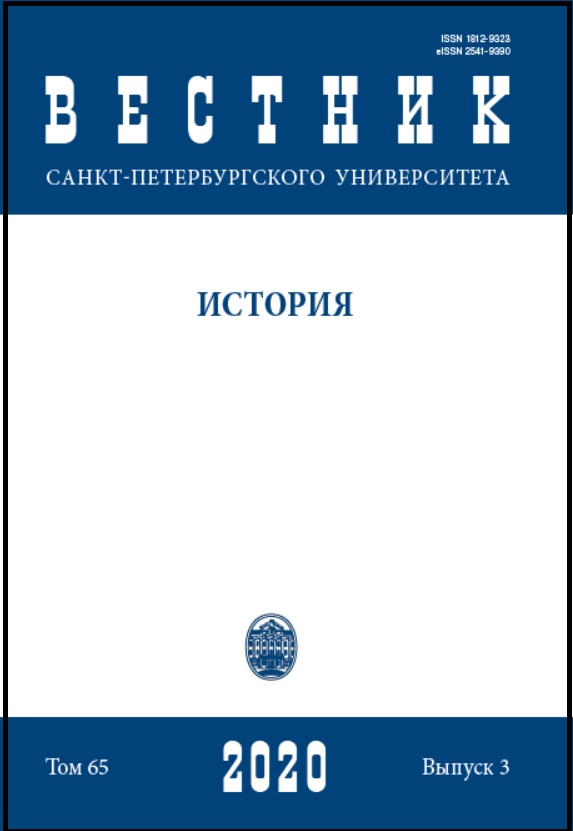Civil Rights and Political Participation in Ancien Régime Europe
DOI:
https://doi.org/10.21638/11701/spbu02.2020.309Abstract
After the Second World War, a wave of euphoria fostered an international consensus that led to the Universal Declaration of Human Rights and the European Treaty for Human Rights, and to institutions to safeguard their application. In the early 21st century, however, these great ideals and even parliamentary democracy appear to be open to various forms of manipulation tending to the restriction of its own constitutional rights and functions. This paper retraces the long-term genesis of these concepts, which emerged in the course of a centuries-long development that is uniquely European. A constant tension can be observed between the difficult formulation of fundamental rights of subjects, originally on a local and regional basis, and the effectiveness of the institutions created to control governments. The growth of cities, which acquired various levels of autonomy and autarchy, was fundamental to make it possible that immunities and particular privileges, similar to these of clerics and aristocrats, became extended to the new communities. The timing of urban growth, and its density within particular territories, determined which balance of powers was stabilised. The earliest and most intense wave of urbanisation, in North and Central Italy from the 10th to the 13th century, brought civil rights and privileges for local communes, but also domination by the largest cities, as they absorbed or eliminated all potentially countervailing powers. In other regions, various balances were attained between the prevailing seigneurial interests and those of urban communities.
Keywords:
Urbanisation, commercialisation, privileges, representation, oligarchisation
Downloads
Downloads
Published
How to Cite
Issue
Section
License
Articles of "Vestnik of Saint Petersburg University. History" are open access distributed under the terms of the License Agreement with Saint Petersburg State University, which permits to the authors unrestricted distribution and self-archiving free of charge.





